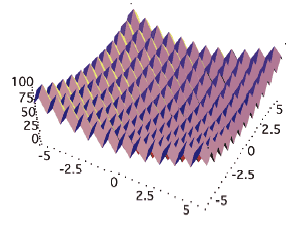As everyone else said, there is no one answer. Although there is some tendency to use crossover rate on level 0.7-0.9 and mutation on 0.1-0.3 it really depends. Depends on problem, may depend on fitness function, and definitely depends on Genetic Algorithm itself. There are many GA variations, optimal parameters for the same problem may vary.
As for using GA to tune parameters of target GA there are approaches like that, but, as it was pointed out, how to tune parameters of first GA? Keep in mind, that maybe mutation rate should be higher at the beginning, and than it should decreasing while cross over rate should be increasing. It is issue of exploration versus exploitation. There are approaches to let GA be more adaptive and let it change its parameters as it looks for solution. Fuzzy controllers are sometimes used to manipulate parameters of GA. There are also other approaches.
If you want to know about it more, buy some books, or look through academic research papers.
If you need to setup your own GA without extensive research, try some values from others work, and experiment with them.

